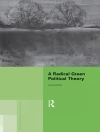More than a decade on from their conception, this book reflects on the consequences of income management policies in Australia and New Zealand.
Drawing on a three-year study, it explores the lived experience of those for whom core welfare benefits and services are dependent on government conceptions of ‘responsible’ behaviour. It analyses whether officially claimed positive intentions and benefits of the schemes are outweighed by negative impacts that deepen the poverty and stigma of marginalised and disadvantaged groups.
This novel study considers the future of this form of welfare conditionality and addresses wider questions of fairness and social justice.
สารบัญ
1. Framing welfare conditionality
2. Why Income Management?
3. Barriers to implementing Compulsory Income Management
4. Identity and emotion
5. Procedural, consumer and contractual rights, and access to justice
6. Resistance and reform: individual and collective agency
7. Voluntary Income Management and financial education
8. Recalibrating social security and reimagining work
เกี่ยวกับผู้แต่ง
Zoe Staines is ARC DECRA Fellow in the School of Social Science at The University of Queensland, Australia.












